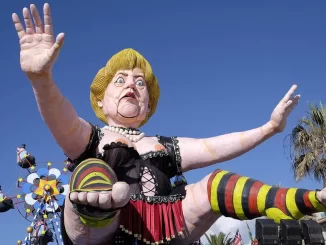
Italy has been called to a snap general election on 25 September.
Last week, President Sergio Mattarella signed the decree of dissolution of the two houses of Parliament and made known the voting date, leaving political parties with just under two months to organise their platforms and campaigns to reach Italian voters worldwide.
This election, however, will be like no others in Italy’s republican history. In 2020, Parliament voted to cut 300 seats. It will now comprise 400 seats (-230) in the Chamber of Deputies and 200 (-115) in the Senate.
Italian citizens living abroad will elect 12 members in the 4 overseas constituencies: 8 members for the Chamber and 4 will go to the Senate. The Africa-Asia-Oceania-Antarctica constituency, which also includes Australia, will elect 1 deputy and 1 senator.
About 5.6 million eligible voters live outside Italy and can opt to return to Italy to cast their vote by no later than 30 July by correspondence. In turn, Italian citizens who are temporarily overseas can also vote in their country of residence by advising their local Italian Comune.
If voters choose to return to Italy to vote, the law does not provide for any type of reimbursement for travel expenses incurred, but only concessions within the Italian territory.
Only voters residing in countries where there are no conditions for voting by correspondence are entitled to a refund of 75 percent of the cost of the travel ticket, in economy class.
Over 154,000 eligible voters in Australia are expected to receive their ballot papers by post on 11 September. Ballots must be promptly returned using the enclosed pre-paid envelope to the local Italian Consulate, to ensure that votes are returned on time for counting.
Under the current election law, Italians living in Italy can stand for one of the seats in the overseas constituencies. Italians abroad, however, can only stand as candidates for their overseas constituency of residence, not for a seat in Italy.
New parties are required to collect signatures from at least 500 resident voters in the relevant foreign constituency and submit them to the registry of the Court of Appeal of Rome no later than 22 August.
New “decentralised” counting system has been introduced for this election. Votes casted in Europe will be counted in Milan, Florence and Bologna; those from South America will go to a counting centre in Rome, while those from North America and Africa-Asia-Oceania-Antarctica will be counted in Naples. Counting for the overseas constituencies will begin at the same time as counting in Italy, on Monday 26 September.
Voting for all Italian citizens is a right protected by the Italian Constitution and Italian citizens residing abroad, registered in the electoral lists of the foreign constituency, can vote by postal ballot. It is therefore recommended that every Italian citizen, especially those born in Australia or overseas, who were most likely registered with the Consulate as infants by their parents or grandparents, check and update their personal details and address with the Italian Consulate
As for political parties, Italians are notorious for many sensitivities, historical and cultural ideologies going back at least one century. From left to right, apart from Enrico Letta’s Partito Democratico (22-23% in recent polls) the other left-wing and centre-left parties are struggling to achieve consensus, let alone unity, but generally speaking if there is anything that keeps political parties together it is in fact a general election.
The 5 Star Movement led by Giuseppe Conte has been blamed for the fall of the Draghi Cabinet and is now facing fragmentation within its ranks as well as trying to reinvent a possible alliance with the Partitio Democratico. In the centre – leaning to the left – a plethora of fans-clubs such as Matteo Renzi’s Italia Viva and Carlo Calenda’s Azione may finally agree to run on a common platform, yet it is unknown how and if coalitions will feature this time round, given the mixed proportional representation and first-past-the-post systems set out in the current electoral law.
The centre-right coalition, according to opinion polls, continues to lead, with the far-right Brothers of Italy party (also with 22-23% in recent polls), being tipped to become Italy’s major party and Georgia Meloni the country’s first female prime minister. Silvio Berlusconi’s Forza Italia and Matteo Salvini’s Northern League have both agreed to an internal rule that will see the job of Prime Minister go to the party in the coalition gaining the most number of votes, however a far-right leadership is also likely to upset the more moderates and pro-EU in the coalition, with three of Berlusconi’s ministers in the Draghi Cabinet who resigned from Forza Italia last week. In these early days, however, much is yet to be seen in the national political arena.
Finally, parties with a focus on Italians Abroad include argentinian-based Associative Movement of Italians Abroad-MAIE with former Undersecretary Ricardo Merlo, the South American Union of Italian Emigrants-USEI and Australia-based movement Uniti – Italia nel Mondo led by Rocco Papapietro and Emanuele Esposito.




Be the first to comment